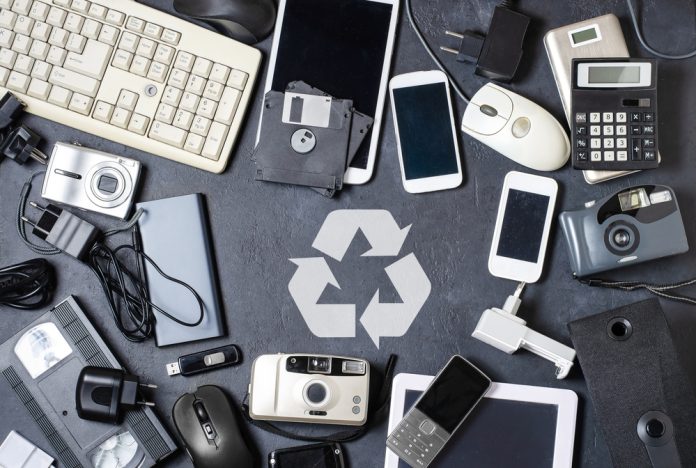Circular Economy Minister Mary Creagh has announced that online marketplaces and vape producers will soon be paying their fair share of the cost of recycling electrical waste, levelling the playing field for UK retailers.
Ensuring large online retailers pay their fair share is fairer for UK businesses who already pay to cover the costs of recycling electrical waste.
It comes as the government delivers on its Plan for Change and reflects a further step in its mission to boost economic growth.
The changes will also help fund recycling services and kick-start the country’s transition to a circular economy, which is the government’s top priority.
Over 100,000 tonnes of electrical waste is incorrectly thrown away
Research from Material Focus estimates that British households incorrectly throw away over 100,000 tonnes of smaller household electrical items, such as kettles and lamps, every year.
In addition, an estimated 880 million unwanted items containing valuable commodities, such as gold and platinum, are abandoned or ignored in the back of the UK’s cupboards and drawers.
Under the new plans, online marketplaces will need to register with the Environment Agency and report data on UK sales of their overseas sellers.
This data will be used to calculate the financial contribution the online marketplace will make towards the costs of collecting and treating waste electricals collected by local authorities and returned to retailers.
A new category of electrical equipment for vapes will also be introduced to ensure that the costs of collecting and treating vapes fall fairly on those who produce them.
Vapes are rarely designed with the end of life in mind and are difficult and time-consuming to recycle, a cost that is not always being borne by those who produce them.
Acting on these important issues now will help address unfairness and deliver on our commitment to kick-start the push towards a circular economy.
New measures will reduce the likelihood of fly-tipping
Before now, UK-based firms were shouldering the majority of costs around the collection and processing of electrical waste and operating at a disadvantage.
With 100,000 tonnes of household electricals binned every year, the changes will, for the first time, make sure the burden of these costs does not unduly fall on UK-based retailers compared to their online rivals.
Electrical waste is difficult to recycle and represents a huge drain on resources when they are not collected separately.
Valuable metals such as copper are needlessly thrown away, while electrical components and chemicals can pose a health and safety risk to the waste industry.
In conjunction with this government’s wider actions to tackle waste and promote recycling, today’s announcement will help to ensure that businesses take responsibility for the huge quantities of waste that might otherwise end up being littered or fly-tipped and support our efforts to protect the environment.
Circular Economy Minister Mary Creagh said: “Electrical equipment like vapes are being sold in the UK by producers who are failing to pay their fair share when recycling and reusing or dealing with old or broken items.
“Today we’re ending this: creating a level playing field for all producers of electronics, to ensure fairness and fund the cost of the treatment of waste electricals.”
She concluded: “As part of our Plan for Change, we are helping UK businesses compete and grow, and we continue to get more households recycling, cracking down on waste and ending the throwaway society.”
Further government action to promote a circular economy
To further deliver on circular economy goals, the UK Government has formed a Circular Economy Taskforce, comprising members from industry, academia, and civil society across the UK.
They will lead the development of a circular economy strategy for England, which will be published next year and outline how individual sectors can contribute to ambitions in this area.
This is alongside plans to move forward with implementing the deposit return scheme for drinks containers and extended producer responsibility for packaging that will end the nation’s throwaway culture and stop the avalanche of rubbish that is filling up our high streets, countryside, and oceans.
These packaging reforms will collectively support 21,000 jobs, stimulate more than £10bn investment in recycling capability during the next decade, and drive £1bn worth of investment opportunities in plastics infrastructure.









